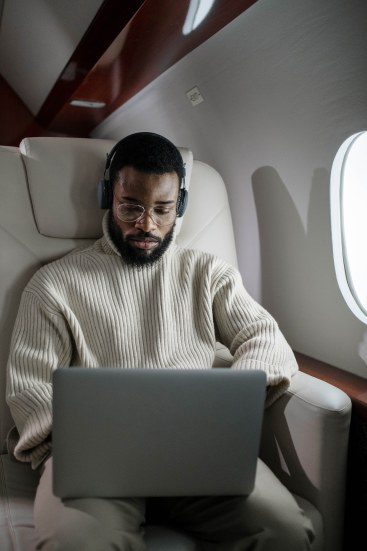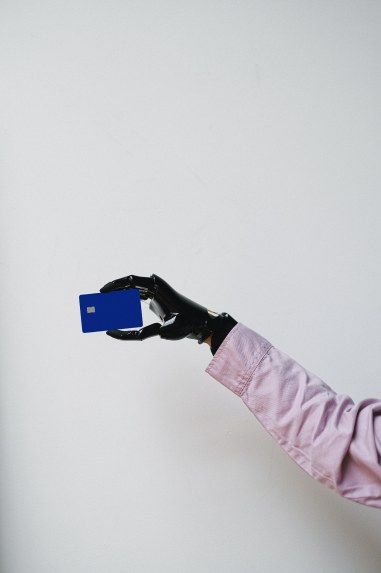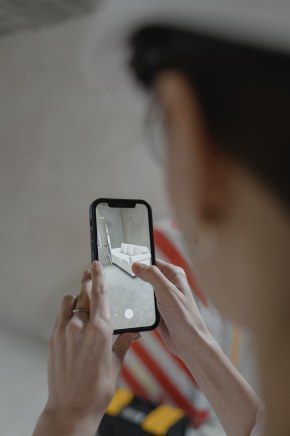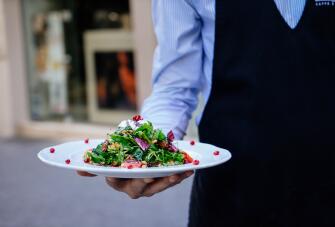What are the Top 10 Trends in Hospitality in 2022?
The COVID 19 pandemic has seen a whole host of problems arise for the hospitality industry. With 81% of businesses having to temporarily close their doors in 2020, hospitality was hit the hardest out of the business sectors [1].
However, as restrictions lift and economies slowly recover, hospitality companies are desperately trying to revitalise the industry by capitalising on the trends that have been emerging amidst the chaos.
Contrary to popular belief, these aren’t just limited to teenagers or social media, instead, honing in on hospitality trends can significantly increase your profits and longevity as a customer-based business.
Since you’ve had it hard enough these past two years, we’ve made identifying these profitable patterns easy, with our list of potential top 10 trends in hospitality for the upcoming year:
Bleisure:
When we say bleisure, we’re talking business… and leisure.
With the pandemic forcing a global shift in attitudes towards remote work, professionals are now keen to make being productive a pleasant experience, which may be the reason 60% of business trips globally turned into bleisure ones in 2021 [2].
Since five-day weeks at the workplace won’t be returning any time soon, (just like some of your colleagues), this trend is here to stay, and definitely worth capitalizing on if you’re a business owner.
Since the percentage of people around the world that permanently work remotely was expected to double in 2021, more and more professionals have been using hospitality venues as an extension of the office [3].
So whether it’s making your coffee shop conference call friendly, adding work hubs and unwavering wifi to your hotel, or having plenty of plug sockets and promotional deals for professionals, you can profit greatly from adapting your hospitality space to the working person.
Staycations:
Bad news travels fast, and it’s no secret that COVID 19 has had a catastrophic effect on international travel. With pricey PCR tests and restrictive regulations, going abroad over the last couple of years has become a lot more hassle than it’s worth, pushing many of us to experiment with holidaying at home.
While switching Bermuda for Belfast might not be ideal, the Irish public seems to be warming to colder climates since the number of people searching for ‘staycations’ increased by over 500% from July 2019 to July 2020 [3].
Staycations are also boosting the tourism industry in the UK and with borders looking like they’ll be bothersome for some time, they’re a trend that’s not going anywhere fast.
If you’re a hotel or B&B, consider investing in luxury equipment such as hot tubs and swimming pools, or updating your existing facilities to give your guests that holiday feeling.
While these adjustments may be unrealistic for some, you can also add smaller details, like high-quality soaps and welcome baskets to your rooms, which could mean the difference between your customer’s cash going to you or the Costa del Sol.
 Holistic hospitality:
Holistic hospitality:
For both businesses and customers, self-care will serve you well. Undoubtedly trending due to the pandemic, this concept has been adopted by many, as a means of offsetting the widespread uncertainty and isolation of the times - with 42% of consumers saying they consider self-care a top priority [4].
As a result, the global wellness industry which is estimated to be worth more than €1.4 trillion, is still on track to grow annually by 5-10%, and hospitality venues are well set to get some of that goodness. For example, if your establishment has spa facilities, you could hold cleansing classes or relaxation days.
Even if your business doesn’t have these features, you should be mindful of different types of wellness that could be profitable, like providing more organic or sugar-free food options in your eatery.
E-experiences:
In a time where touching a physical menu can be a recipe for disaster, the trend towards digitised guest experiences is quickly becoming the norm. Since 2020 (unsurprisingly), the use of apps and QR codes, as well as digital services has become an increasingly integral part of the hospitality industry, especially where restaurants and hotels are concerned.
With the increasing introduction of these technology-assisted options, such as contactless payments, voice control, and mobile check-ins, customer-facing businesses are looking at a large-scale overhaul. As a business owner in the hospitality sector, you have to consider what this looks like for your future.
 Since guests and visitors will become more accustomed to having this ease and efficiency at their fingertips, they will undoubtedly expect you to expand this level of digitization across the wider areas of your business, for example, facial recognition room keys in hotels, or paying for your food with your finger at restaurants.
Since guests and visitors will become more accustomed to having this ease and efficiency at their fingertips, they will undoubtedly expect you to expand this level of digitization across the wider areas of your business, for example, facial recognition room keys in hotels, or paying for your food with your finger at restaurants.
While imparting these upgrades might put pressure on your purse, investing now can keep your business well ahead of the curve, and keep it booming into 2023.
Personalisation:
It’s not personal, it’s business… well actually, it’s both.
Customers know exactly what they want, and after two years of no hugs, it’s no wonder personal touches are trending. However, gone are the days of guests being happy with a personal greeting on promo emails, they want their experience to be personalised from beginning to end.
For hotels, this could mean tailoring everything from the initial greetings to modified room service menus and even what’s on the TV. While this may seem like a big ask for businesses, there are a few ways to go about this without busting the budget, but none better than data analytics.
By integrating technology like hospitality POS systems with business apps such as Mailchimp, you can provide personalised marketing easily, while also understanding what each customer wants through their internet activity, allowing you to provide it as an individual experience in situ.
VR and Augmented Reality:
With everything that’s gone on globally in recent years, it’s easy to wonder whether this is actually real-life - and that’s made even easier when VR's involved.
This trend has simply taken off - with the number of global virtual reality device shipments, which stood at 13.48 million units in 2020, predicted to rocket up to 112.62 million units by 2026 [5]. This spiked interest is especially poignant for the hospitality industry, as VR can offer guests an immersive experience that’s second to none.
 Especially in a time where in-store interaction continues to be limited, introducing virtual reality can provide a welcome reminder of pre-covid life, from the comfort of your customer’s own homes. While many assume VR to be extortionate, it’s not all about the hi-tech headsets.
Especially in a time where in-store interaction continues to be limited, introducing virtual reality can provide a welcome reminder of pre-covid life, from the comfort of your customer’s own homes. While many assume VR to be extortionate, it’s not all about the hi-tech headsets.
With the likes of Google Cardboard and Oculus Go, you can make your material accessible to your customers from a range of mobile devices, and have guests get involved in VR without breaking the bank.
Whether this might be a virtual tour of your hotel or 360-degree shots of your bar, you can make your business stand out while keeping your costs close to the floor.
And who says business can’t be fun? When guests visit your establishment, you can further improve their customer experience.
By introducing augmented reality, which attaches informational/graphic overlays to real objects that come to life when viewed through a smartphone, you encourage customers to engage, increase the child-friendly element of your business and overall enhance your on-site space.
The bare essentials:
After witnessing the devastating effects COVID 19 had (and is still having, especially on the disadvantaged), it’s safe to say that post-pandemic, there’s been a global increase in gratitude.
Unsurprisingly, this newfound appreciation for the simpler things in life has translated into a major trend across the hospitality sector - essentialism [6].
A move towards minimalistic living and thinking, this trend is essentially seeing travellers come away from lavish, overindulgent holidays and instead preferring to spend on recuperating retreats, mentally challenging trips, and getaways that are immersed in bettering local communities and appreciating local cultures.
Sustainability:
This trend does what it says on the tin (widely recycled). Sustainability isn’t going anywhere, but while the concept has been circulating for many years, it’s never had as much prevalence as it does in our current climate. Post-pandemic, and with our planet in an increasing state of crisis, customers are constantly looking inwards to see what they can do individually for the environment, and as a result, are considering their choices as consumers.
Bringing your business up to speed in this department isn’t as difficult as it sounds, and can be as simple as using recycled materials in your décor or only cooking with organic produce.
Hi-tech housekeeping:
Following the pandemic, businesses are having to wash their hands of traditional cleaning methods. With a lot of customers still hesitant to re-enter hospitality venues, the presence of soap and water is not enough to reassure guests that your establishment is sanitised thoroughly. This is where technology steps in.
As a business owner, whether it’s a micropub or mega-resort, your space needs to consistently maintain a top level of hygiene, so digitizing your cleaning process should make this both more effective and efficient.
Since industry giants consider hotel cleanliness to be the backbone of the tourism trade it might be beneficial to look into utilizing tools, like the Certify housekeeping app, a daily management system that covers the entire housekeeping department and digitalises all inspection and cleaning and processes for all rooms and public areas.
Going solo:
While doing isolation alone is a no, solo travel, on the other hand, is most definitely a go, according to the 42% increase in solo traveller bookings over the last two years [7].
For many, this extended period of reduced activity and involuntary one-on-one time has led to a desire for more introspection and a longing for new experiences, which can be easily found through solo travel.
A number of businesses have started to offer more activities and services that cater specifically to solo travellers - such as tours and meetups. If you’re not looking to spend, offering single occupancy rooms at a reduced price can incentivise those travelling alone.
Stay on trend with an award-winning EPOS System
Epos Now offers state-of-the-art EPOS systems for hospitality businesses. We let you choose the tools and insights to help your business achieve its goals. Designed to work as a complete business management system, you can control all vital aspects of your company from one cloud-based system.
Receive detailed analysis on the areas that matter to your business:
- Review profitability reports based on individual product performance, trending items, best and worst sellers.
- View sales analyses on profit margin, cash flow, and other expenses
- Review reports on peak times for better staff scheduling and floorplan management
- Access multi-award-winning inventory management systems that sync online sales and in-person sales for the most up-to-date stock levels
- Integrate with the business automation apps that are right for your business
- Table management and booking system integrations available for an optimised service
If you’d like to learn more about our industry-leading software, request a free callback with one of our experts.



